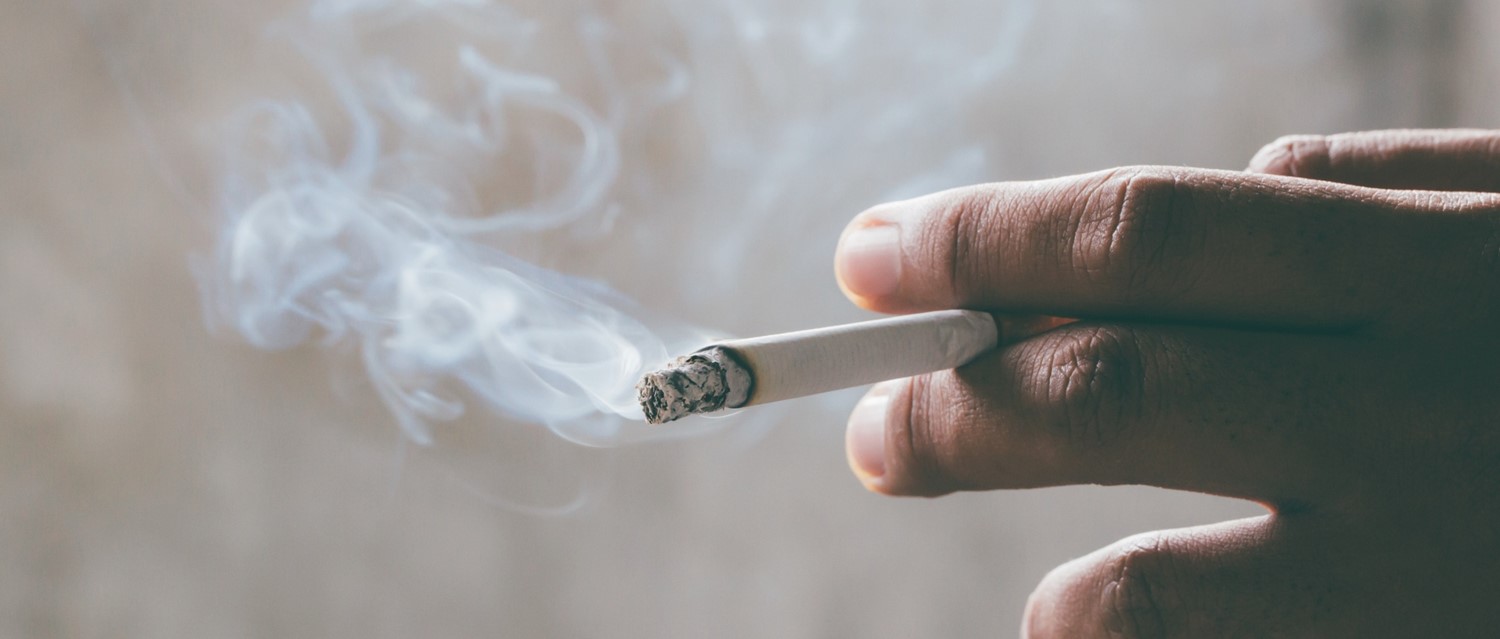
Does smoking affect your sex life?
Peer reviewed by Dr Sarah Jarvis MBE, FRCGPLast updated by Andrea DowneyLast updated 12 Oct 2021
Meets Patient’s editorial guidelines
- DownloadDownload
- Share
- Language
- Discussion
- Audio Version
It's pretty impossible not to be aware that smoking is bad for our health - the risks of lung cancer, chronic lung disease, heart disease and more which come with lung cancer are all too well known. But would it make you more likely to quit if you learned it could affect your abilities in the bedroom - regardless of your sex?
In this article:
Video picks for Smoking and vaping
There's good evidence that smoking can have a seriously negative effect on your sex life - causing anything from a lack of sex drive to impotence.
Dr Luke Pratsides, lead GP at online health clinic Numan, and Hussain Abdeh, clinical director and superintendent pharmacist at Medicine Direct, explain how smoking can impact your sex life.
Continue reading below
'A colossal impact'
No one wants to hear the words 'colossal impact' in their sex life unless it's the impression they’ve left on a partner (in a good way), but unfortunately that's not what Dr Pratsides is referring to here.
"The chemicals in cigarette smoke have a colossal impact on a range of bodily functions, and your sex life is likely to be included. Ways it can alter your sex life in the short term include sexual dysfunction (such as erectile dysfunction and decreased vaginal lubrication) and a lowered sex drive," he explains.
"In the long term, shortness of breath from smoking-related lung disease can result in reduced stamina in the bedroom."
If that wasn't enough to put you off smoking, Abdeh has more news for you.
"Smoking can lead to a number of negative issues surrounding your sex life. It can make you ejaculate faster, decrease your libido and also impact your fertility," he adds.
The hows and whys
Back to contentsIt's no secret that cigarettes are filled with nasty chemicals, and it's these chemicals that are responsible for problems in between the sheets.
Sex drive down
"Smoking can have a detrimental effect on the testosterone levels in both men and women. This is because smoking increases the levels of carbon monoxide in a person's body, which reduces the production of testosterone and leads to a decreased sex drive," Abdeh explains.
Getting (and keeping) it up
On top of that, the nicotine found in cigarettes can affect your blood flow, something that's very important in achieving and maintaining an erection.
"Cigarette smoke damages several bodily functions, including sexual function. It's known to be a risk factor when it comes to erectile dysfunction. This is partly because nicotine causes the blood vessels in your body to narrow," Dr Pratsides says.
"When sexually aroused, nerves signal the production of chemicals to increase blood flow to the penis and make it firm. As nicotine causes your blood vessels to narrow, blood flow is reduced, meaning the ability to get and maintain an erection is hindered."
In addition, smoking is a major contributor to atherosclerosis, or furring up of the arteries. The chemicals in cigarettes cause a variety of problems within blood vessels - inflammation, increased 'stickiness' of the blood, a greater tendency to lay down cholesterol plaques on the inside of the arteries.
All these factors can limit blood flow within the arteries, reducing the flow of oxygen-rich blood. If the arteries concerned are those supplying blood to the heart, the result can be angina or heart attack. If the arteries concerned are in the penis and blood flow is limited, the likely consequences are obvious. In fact, erectile dysfunction is often used by doctors as a possible early marker of heart attack risk.
Both Dr Pratsides and Abdeh say studies have shown smoking can cause premature ejaculation, but more research is needed to properly understand why that might be the case.
Her too?
While the evidence is less strong, women's enjoyment of sex may also be affected by smoking.
"At present, there is relatively little evidence to directly link smoking to female sexual dysfunction, but research has suggested that women who smoke may be at a higher risk of a delay in orgasm during sexual intercourse," Abdeh explains.
"Like men, this occurs when blood flows to the genitals, which is constricted by chemicals in cigarette smoke."
Continue reading below
Maybe baby
Back to contentsPerhaps the most distressing impact smoking can have on your sex life is the effect it can have on your fertility. That's because smoking is linked to harming ovarian production as well as semen production.
"Cigarette smoke hinders the ovarian cells' function of making oestrogen. Smoking also speeds up how quickly women lose eggs and works to increase the speed of infertility," Abdeh says.
"Once eggs have died, they cannot be replaced, meaning that women who smoke are likely to go through the menopause earlier than non-smokers. Early menopause has been linked to other health problems too, such as osteoporosis."
In men, smoking has been linked to a change in the shape and function of sperm, meaning it's harder for the sperm to reach the ovaries.
"For men, smoking is associated with a decreased volume of semen, sperm count, and a lower percentage of motile sperm," Dr Pratsides adds. "If you're trying to conceive, it's highly recommended to give up smoking."
Quit it
Back to contentsBy now you've probably guessed the best way to avoid these problems is to quit smoking. It may seem like an uphill battle but there are plenty of places you can get advice and resources to help you kick the habit for good.
"Smoking cessation isn't easy, but hundreds of thousands of smokers successfully quit every year. You're four times more likely to successfully quit if you get expert help so don't be afraid to seek guidance," Dr Pratsides says.
The best place to start is by speaking to your local pharmacist about stop smoking therapies, which could include nicotine patches, gum or sprays.
"A medication like Champix can be taken to lessen the cravings and withdrawal symptoms that people experience when giving up smoking. This helps to remove the pleasurable feeling of smoking and makes it easier to quit for good," Abdeh adds.
"Using the likes of nicotine gum or patches can also help to ease the transition from cutting down to giving up smoking altogether.
"Private therapists often offer support for people who are suffering from addiction, including drugs, alcohol and nicotine. So, if you feel you require a long-term support to kick the habit private therapy may also be useful.
"There are also 'stop smoking' support groups, which are normally free and offer help to a group of people who are all trying to give up. This can help to make giving up smoking a less isolating experience."
If you need more advice about quitting smoking or you're looking for some personalised support, you can find out more information about stop smoking services in your local area on the NHS Smokefree website, or you can speak to a pharmacist about the tools available to help you quit.
It's also a good idea to book an appointment with your GP to double check the problems in the bedroom aren’t linked to something more serious.
Patient picks for Smoking and vaping

Healthy living
What does smoking do to your heart?
Most people, whether or not they smoke, are aware of the damage that smoking can cause to people's lungs. But far fewer people are aware that smoking is also harmful to the heart. Although smoke is inhaled into the lungs, the chemicals absorbed into your bloodstream can also affect the health of your heart and circulatory system.
by Gillian Harvey

Healthy living
E-cigarettes could be prescribed on the NHS in world first
As part of the government's ambition to make England smoke-free by 2030, we could become the first country in the world to prescribe medicinally licensed e-cigarettes.
by Emily Jane Bashforth
Continue reading below
Article history
The information on this page is peer reviewed by qualified clinicians.
12 Oct 2021 | Latest version

Ask, share, connect.
Browse discussions, ask questions, and share experiences across hundreds of health topics.

Feeling unwell?
Assess your symptoms online for free
Sign up to the Patient newsletter
Your weekly dose of clear, trustworthy health advice - written to help you feel informed, confident and in control.
By subscribing you accept our Privacy Policy. You can unsubscribe at any time. We never sell your data.